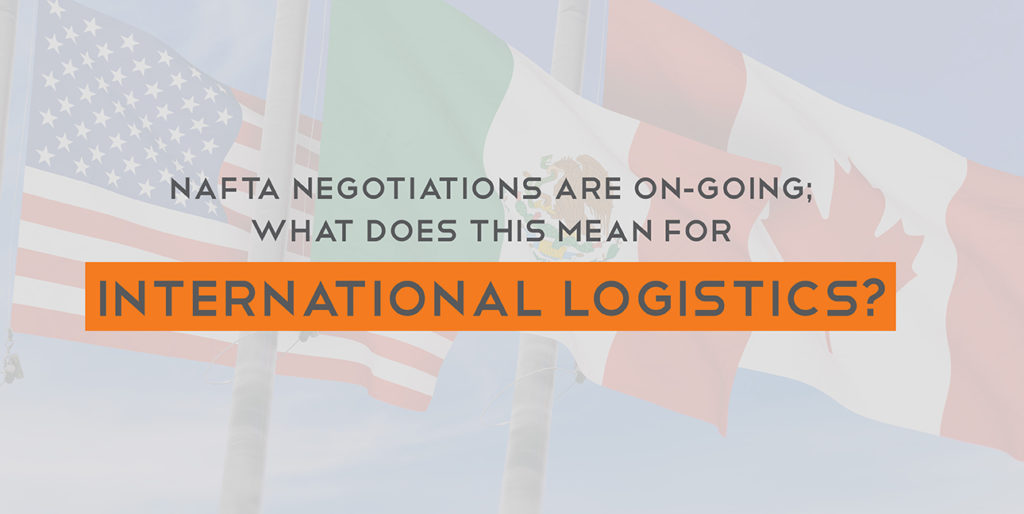The North American Free Trade Agreement, the world’s largest free trade agreement, is making headlines as negotiators missed a self-imposed deadline to rewrite the deal in May of 2018.
At TOC Logistics, our team is monitoring the ongoing conversations as experts weigh the pros and cons of NAFTA and next steps are determined by each country’s leadership.
The Clock is Ticking
Robert Lighthizer, America’s top trade negotiator, stated in May of 2018, “I believe if we don’t get it done in the next week or two, we’ll be on thin ice.” With the Mexican presidential election slated for July 1, the hope was to have the deal signed by that time.
Meanwhile, Bloomberg reports that Canadian Prime Minister Justin Trudeau has stated “No NAFTA is better than a bad deal…” and “…the interconnectedness between Canadian and U.S. economies is not going to change any time soon.”
Unsurprisingly, Supply Chains Will Be Impacted
Supply chains are extremely complex, and companies have spent decades creating systems that maximize available systems and resources. According to The New York Times, “American automakers are especially reliant on parts imported from overseas — but other industries, including agriculture, energy and retail would also be affected. These trading relationships help keep the price of the final product competitive with other major global manufacturing hubs in Asia and Europe.”
Both consumers and companies that buy and sell goods could be impacted by changes to supply chains, not to mention the years of building relationships and systems that take advantage of the current landscape.
To avoid any new tariffs that affect global supply chains, we expect that many will change the way they manage their supply chains by taking advantage of loopholes or exceptions to regulations. We predict that exceptions and loopholes that have gone by the wayside because of NAFTA will start to be re-implemented.
An Alternative May Be Reached
The three countries could create a new trade pact; alternatively, the US could update individual deals with both Mexico and Canada, but The New York Times also reports that, “…following a contentious collapse of the agreement, Canada and Mexico may be in no mood to negotiate.”
However, in the Mexico Trade Report – 2018 Q1, A.P. Moller-Maersk’s Managing Director for Mexico and Middle America Cluster Mexico City, Mario Veraldo, stated, “NAFTA is only one accord that works well in international trade…there are other developments within the hemisphere that must also be taken into consideration.” Because all NAFTA countries are also members of the World Trade Organization, they would be held to those existing standards.
NAFTA Members Are Exploring Options
In early June, Bloomberg reported that Mexico’s top trade official traveled to Japan to explore opportunities to diversify exports, explaining, “Deepening ties with Japan and the other nations in the Pacific deal is part of Mexico’s push to diversify exports. Currently, 72 percent of the nation’s $435 billion in goods sold abroad every year go to the U.S.”
These conversations are spurred by an impasse in NAFTA talks. New agreements between any countries will impact supply chains, creating new challenges and opportunities.
So, what does this mean for a leader in international logistics? Our team is staying apprised of all reports of potential changes to existing agreements, and monitoring the impacts of new deals on the international stage. With potential for increased costs, we remain committed to serving as a partner that provides value to our customers, suppliers, employees, and shareholders.

